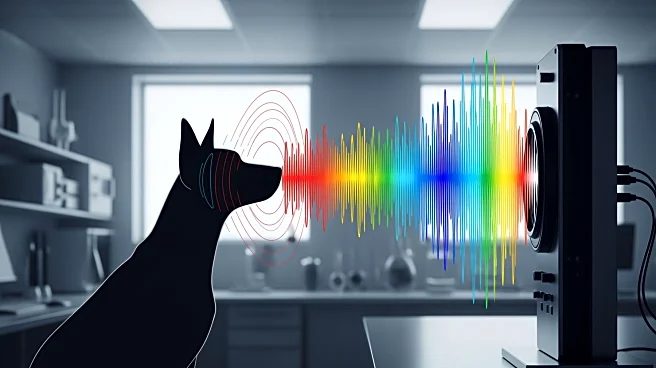What's Happening?
Researchers in Hungary, led by ethologist Tamás Faragó, investigated whether dogs could learn to speak human language. The study, conducted at the BARKS Lab of Eötvös Loránd University, reviewed existing literature on canine communication and the ethical
implications of teaching dogs to speak. While the idea of talking dogs remains a fantasy, the research highlights the complexity of cross-species communication and the ethical concerns that would arise if dogs could speak.
Why It's Important?
The study sheds light on the potential ethical and legal issues of dogs learning human speech, such as the implications for animal testing and ownership rights. It emphasizes the importance of understanding canine communication within their natural habitat—human environments. The research encourages a deeper understanding of dog vocalizations, which could enhance human-animal interactions and improve pet care practices.
What's Next?
The research team plans to map the vocal repertoire of dogs to help owners better understand their pets. They are seeking public contributions of dog vocalization recordings to further their study. This initiative aims to improve communication between dogs and humans without attempting to make dogs speak human language.















